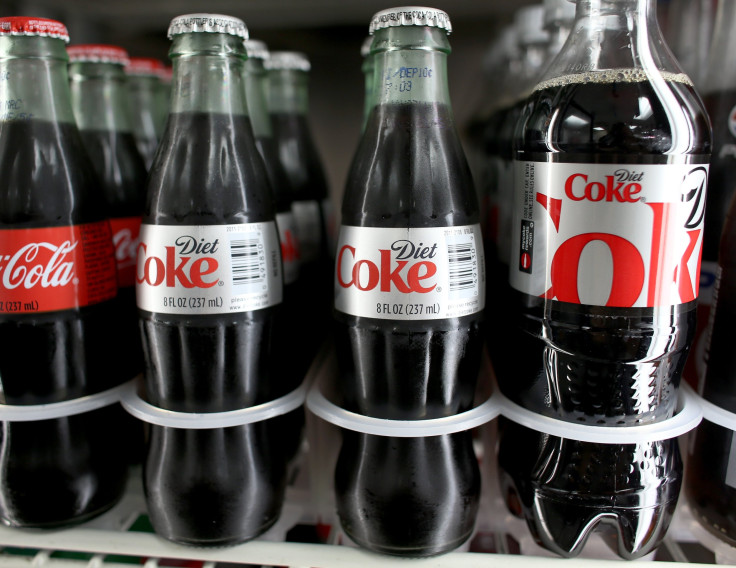Drinking Diet Soda May Justify Eating More, Higher-Calorie Foods

Diet soda is consistently under fire: Studies show drinking the stuff can lead to weight gain, metabolic syndrome, and cardiovascular disease. And according to new research from Dr. Ruopeng An, a professor of kinesiology and community health at the University of Illinois at Urbana-Champaign, it may be because drinkers try to compensate for the drink's zero calorie count.
An's research cites that diet soda drinkers tend to think they’re “saving” calories by choosing diet over regular soda, but instead it can lead them to consume more foods high in sugar, sodium, and fat. To arrive at this conclusion, An looked at 10 years of data previously collected from more than 22,000 U.S. adults participating in the National Health and Nutrition Examination Survey. In this survey, researchers collected the health and nutritional status of adults and children in the U.S. by asking them (among other things) to recall everything they ate or drink over the course of two days.
An examined the self-reported daily calorie intakes, in addition to making comparisons between participants who consumed diet or sugar-free drinks to participants who consumed other beverages, like sugar-sweetened beverages, coffee, tea, and alcohol. An found that over 90 percent of people in the study consumed discretionary foods — foods that don’t belong to any major food group and are not required by the human body — on a daily basis, contributing an average amount of 482 calories each day.
Unlike previous studies on beverage preferences and consumption of discretionary food, which primarily focus on snacking, An chose to examine the nutritional quality of the food people consumed rather than the time of day the food was eaten. For example, 53 percent of participants reported they drank coffee, the most consumed bevarage of the group. Coffee was followed by sugar-sweetened beverages (43 percent), tea (26 percent), alcohol (22 percent), and diet drinks (21 percent).
An found that alcohol consumption lead to the largest increase in daily calorie intake at 384 calories, followed by sugar-sweetened beverages (226 calories), coffee (108 calories), diet beverages (69 calories) and tea (64 calories). Though coffee and diet drinkers were on the low end when it came to total calories consumed daily, they obtained a greater number of these calories from discretionary foods. An said that this suggests a possible compensation effect.
"It may be that people who consume diet beverages feel justified in eating more, so they reach for a muffin or a bag of chips," An said in the press release. "Or perhaps, in order to feel satisfied, they feel compelled to eat more of these high-calorie foods."
An said another possibility is that people choose diet beverages because they feel guilt over eating unhealthy food.
"It may be one — or a mix of — these mechanisms," An said. "We don't know which way the compensation effect goes."
An pointed out that drinking diet beverages won’t help with weight control if people aren’t cautious about the amount and quality of food they consume. He said that if people are simply substituting diet drinks for sugar-sweetened beverages, the calories saved may just be eaten instead.
An concluded: "We'd recommend that people carefully document their caloric intake from both beverages and discretionary foods because both of these add calories — and possibly weight — to the body."
Source: An R. Beverage Consumption in Relation to Discretionary Food Intake and Diet Quality Among US Adults, 2003 to 2012. Journal of the Academy of Nutrition and Dietetics. 2015.



























